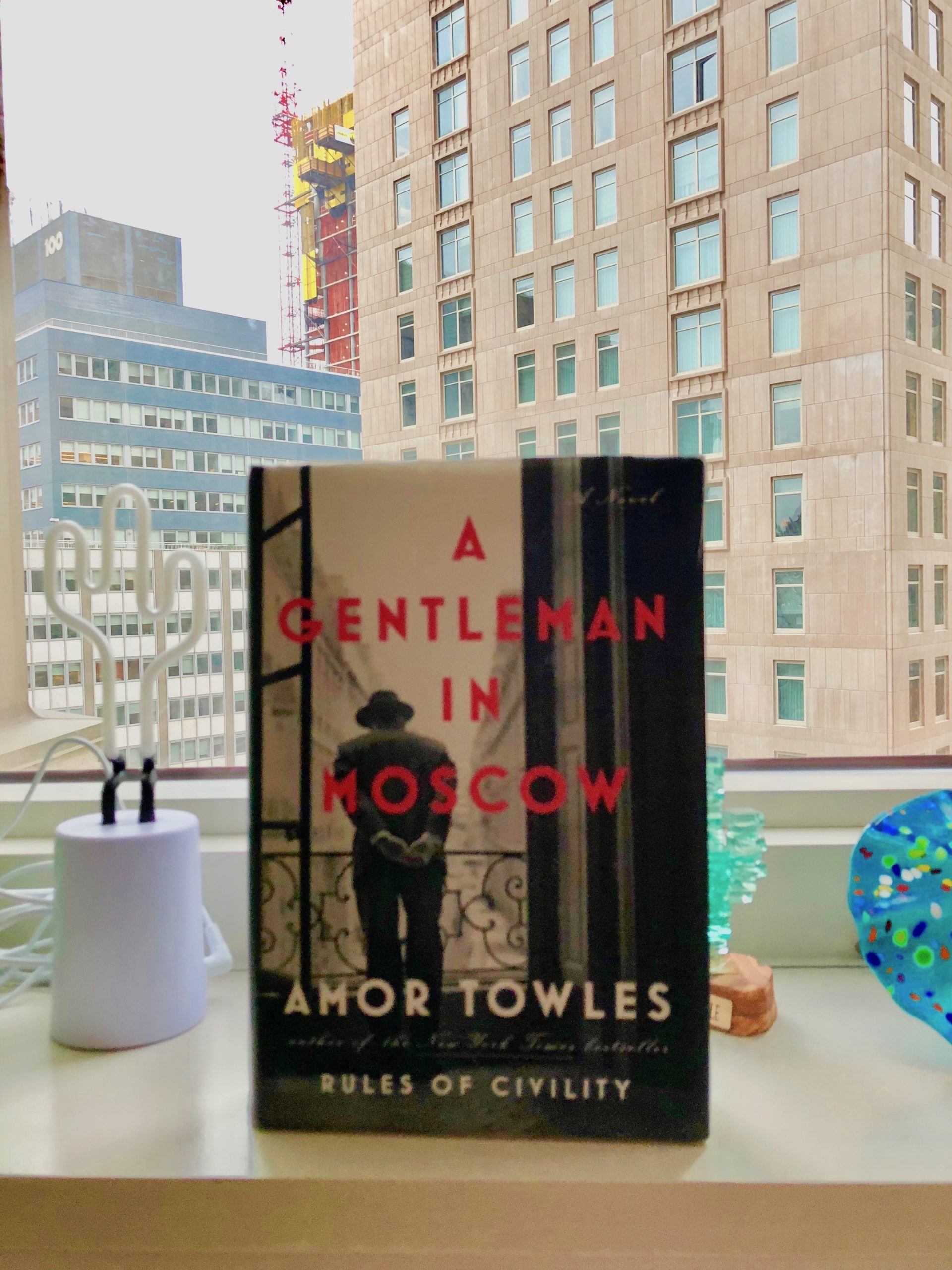A Gentleman in Moscow – A Lesson in Purpose and Sophistication

A pure joy – that’s the best way I can describe A Gentleman in Moscow by Amor Towles. Not only will you learn lessons in sophistication, but more importantly, what it means to have purpose.
Count Alexander Ilyich Rostov, the main character, is an aristocratic gentleman who is imprisoned by a Bolshevik tribunal and placed under house arrest inside the Metropol. The Metropol is a real hotel in the center of Moscow that was built prior to the Russian Revolution in 1917. The book in general seems historically accurate, although I did not know much about the Bolsheviks and the history of the Soviet Union prior to reading A Gentleman in Moscow.
When Count Rostov is imprisoned in 1922, he loses his freedom to the confines of the Metropol, but the beautiful irony becomes clear as he discovers a world arguably richer and more abundant with life than the one outside. The characters he befriends, from the executive chef of the Boyarsky, to its head waiter, and a small girl, all capture his imagination and help provide him with purpose in his enclosed world.
“A man must master his circumstances or otherwise be mastered by them.” The Count always reminds himself of this noble truth. Instead of dwelling in the darkness of his perpetual situation, he makes every effort to find meaning and hope in every corner of the hotel. So when a young girl is effectively left at his doorstep to care for and raise, he acts with gusto and resolve. He raises the girl as if she were his own. He teaches her about the world through his stories, even though, at this point, he has not ventured outside the hotel’s doors for years.
Some may describe the Count as a “Renaissance Man” of sorts. Prior to his house arrest, he was a member of Russian aristocracy, he traveled the world, reveled in the city streets of Paris, and immersed himself in almost every culture and field of study in the world, whether through books or in person. He learned how to be gentleman.
One of the most powerful parts of the book for me was how Towles tied the Count’s sophistication into Russian history. The Metropol was less impacted from the Revolution in comparison to other segments of Russian culture because it served as a hub for international travelers visiting Moscow. In time, however, the Bolsheviks got around to recasting this grand hotel into a mold of their own making, even going so far as to remove any form of identification on wine bottles served in the hotel’s restaurants. The Bolsheviks rooted out any form of difference, all the way down to the wine lists, which were viewed to run counter to the ideals of the Revolution. It was seen as a monument to the privilege of the nobility and upper classes. The Metropol would therefore only serve red or white wine, and nothing more.
This connection between history and the Count mastering his circumstances plays itself out until the end of the novel. The book does a fantastic job of illustrating what life is like under a Communist regime, especially the restrictions on movement and free speech. It provides a thoughtful study in political science, history, sociology, literature, and the arts, particularly through the Count’s conversations with members of the Communist party, who he develops relationships with at the Metropol.
With this historical backdrop and context, the Count’s search for purpose entices the reader and brings them on quest that is difficult to pause. Best of all, so many passages simply make you smile, for they perfectly articulate universal truths so effortlessly:
“I’ll tell you what is convenient,” he said after a moment. “To sleep until noon and have someone bring you your breakfast on a tray. To cancel an appointment at the very last minute. To keep a carriage waiting at the door of one party, so that on a moment’s notice it can whisk you away to another. To sidestep marriage in your youth and put off having children altogether. These are the greatest conveniences, Anushka – and at one time, I had them all. But in the end, it has been the inconveniences that have mattered to me the most.”
For useful additional color on this book, see a Q&A with Amor Towles himself. I could not recommend this book more. Happy reading.



1 Comment
The Pool: Blasé Food in a Beautiful Setting – PolisPandit · December 29, 2018 at 4:21 pm
[…] set the perfect ambiance for a romantic evening. You may even feel like Count Alexander Rostov from A Gentleman in Moscow as you peruse the elaborate menu and bible-size wine list. “Shall we go with the 1881 […]